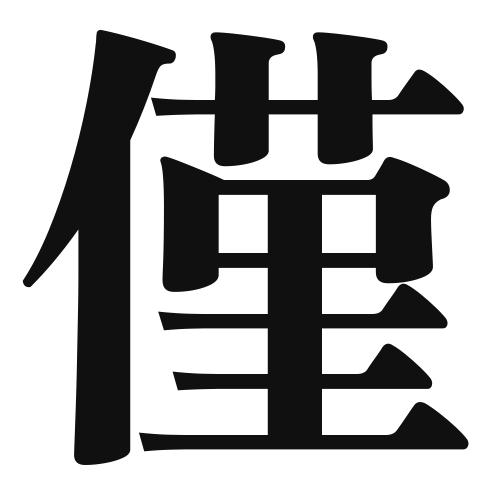1. Overview of Meaning
The kanji “僅” (pronounced “kin” or “gin”) means “only,” “merely,” or “just a little.” It conveys the idea of a small quantity or a limited amount of something.
2. Formation and Radical
Formation of the Kanji: The kanji “僅” is a phonetic compound (形声文字), which combines the meaning of the left part (the radical) with the phonetic component on the right. The left part “亻” (a variant of “人,” meaning “person”) suggests a human element, while the right part “斤” (meaning “axe” or “weight”) contributes to the pronunciation.
Radical: The radical of “僅” is “亻,” which is related to people or human actions.
3. Examples of Usage
Common Words and Phrases:
- 僅か (わずか, wazuka) – “only a little” or “merely”
- 僅少 (きんしょう, kinshou) – “small amount” or “few”
Example Sentences in Daily Conversation:
- この仕事は僅かに時間がかかります。 (This job will take only a little time.)
- 彼は僅かにお金を持っています。 (He has only a little money.)
4. Synonyms and Antonyms
Similar Kanji:
- 少 (しょう, shou) – “few” or “less,” which emphasizes a smaller quantity but is more general than “僅.”
- 微 (び, bi) – “tiny” or “minute,” which conveys an even smaller amount than “僅.”
Antonyms:
- 多 (た, ta) – “many” or “much,” indicating a large quantity, which is the opposite of “僅.”
5. Cultural and Historical Background
Relation to Japanese Culture: The kanji “僅” is often used in contexts where modesty or humility is emphasized, reflecting cultural values in Japan that appreciate simplicity and restraint.
Proverbs and Idioms:
- 僅かの努力で大きな成果を得る (With just a little effort, you can achieve great results) – This saying highlights the importance of small contributions leading to significant outcomes.
